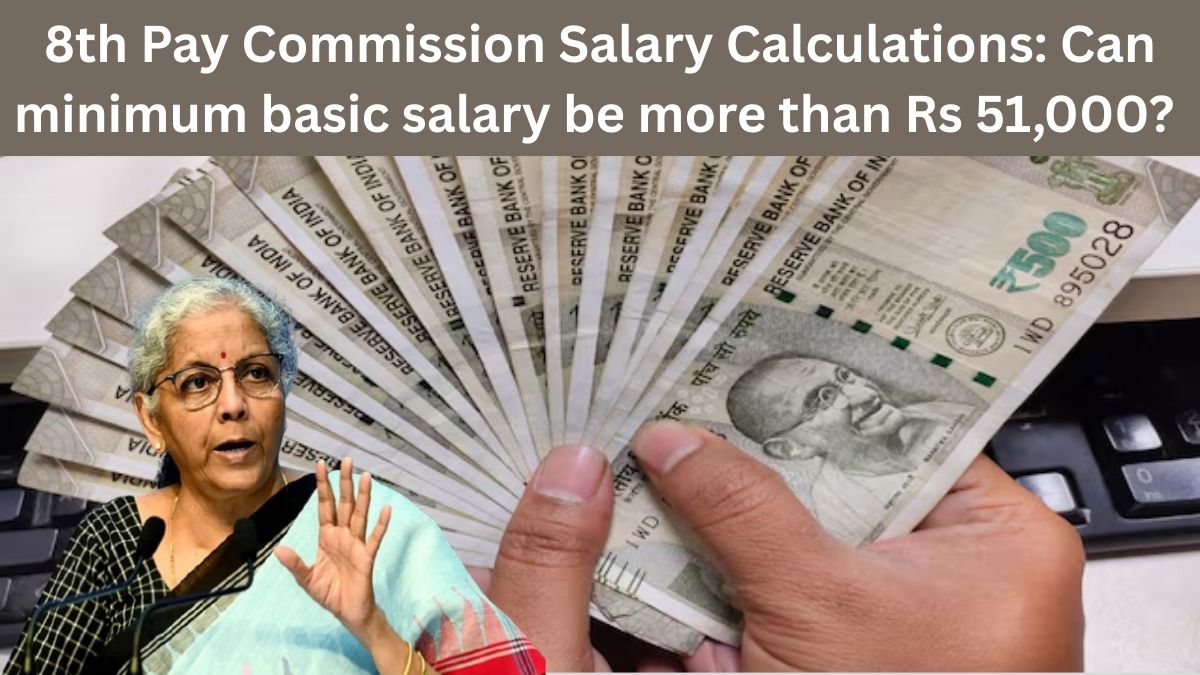The 8th Pay Commission is a highly anticipated reform for central and state government employees in India. With expectations of a major salary revision, many are hoping that the minimum basic salary could increase from ₹18,000 to over ₹51,000. The final salary hike will depend on various factors like the fitment factor, Dearness Allowance (DA), and government policies.
What is the 8th Pay Commission?
A Pay Commission is a government-appointed body that reviews and recommends salary adjustments for government employees. It ensures that wages, pensions, and allowances are revised according to economic conditions, inflation, and cost of living.
The 7th Pay Commission was implemented on January 1, 2016, and will remain in effect until December 31, 2025. The 8th Pay Commission is expected to be announced in 2025 but may take time to be fully implemented.
When Will the 8th Pay Commission Be Implemented?
The expected timeline for the 8th Pay Commission is:
| Event | Expected Date |
|---|---|
| Announcement | January 2025 (Tentative) |
| Formation of Commission | 2025 |
| Recommendation Submission | 2026 |
| Cabinet Approval | 2026 – 2027 |
| Implementation | Mid-2027 (Expected) |
Although the ideal implementation date is January 1, 2026, procedural delays might push it back by 1 to 1.5 years.
How Are Salaries Revised in a Pay Commission?
The pay revision follows a structured process:
- Economic Review – Analyzing inflation, GDP growth, and cost of living.
- Fitment Factor Calculation – A multiplier applied to the current basic salary to determine the new salary.
- Revision of Allowances – Adjustments in House Rent Allowance (HRA), Travel Allowance (TA), and Medical Allowance.
- Cabinet Approval & Implementation – Final approval and official notification from the government.
Will the Minimum Salary Cross ₹51,000?
The fitment factor plays a key role in salary hikes. Here’s a comparison of past Pay Commissions:
| Pay Commission | Recommended Fitment Factor | Final Fitment Factor |
|---|---|---|
| 6th Pay Commission | 1.74 | 1.86 |
| 7th Pay Commission | 2.57 | 2.57 |
| 8th Pay Commission (Expected) | 2.28 – 2.86 | TBD |
If the fitment factor is 2.86, the minimum salary could increase from ₹18,000 to ₹51,480.
Projected Salary Increase at Different Levels
| Grade Level | Current Basic Pay (₹) | At 2.86 Fitment Factor (₹) |
|---|---|---|
| Level 1 | 18,000 | 51,480 |
| Level 2 | 19,900 | 56,914 |
| Level 3 | 21,700 | 62,062 |
| Level 4 | 25,500 | 72,930 |
| Level 5 | 29,200 | 83,512 |
| Level 10 | 56,100 | 1,60,446 |
| Level 15 | 1,82,200 | 5,21,092 |
| Level 18 | 2,50,000 | 7,15,000 |
Dearness Allowance (DA) and Other Allowances
- Dearness Allowance (DA) is revised twice a year and may reach 70% by the end of the 7th Pay Commission. It is expected that DA will be merged into the new basic pay.
- HRA and TA may also see a revision due to inflation and fuel price increases.
Salary Growth in Previous Pay Commissions
| Pay Commission | Minimum Salary Increase (%) | Maximum Salary Increase (%) |
|---|---|---|
| 2nd Pay Commission | 14.20% | 20% |
| 3rd Pay Commission | 20% | 30% |
| 4th Pay Commission | 25% | 35% |
| 5th Pay Commission | 30% | 40% |
| 6th Pay Commission | 40% | 54% |
| 7th Pay Commission | 14% | 23% |
If the 8th Pay Commission follows past trends, we can expect a 30-35% salary hike.
Conclusion
The 8th Pay Commission is expected to bring a significant salary increase for government employees. The final hike will depend on the fitment factor and government policies. Employees can expect higher basic pay, revised allowances, and improved financial benefits once the new pay scale is implemented.
